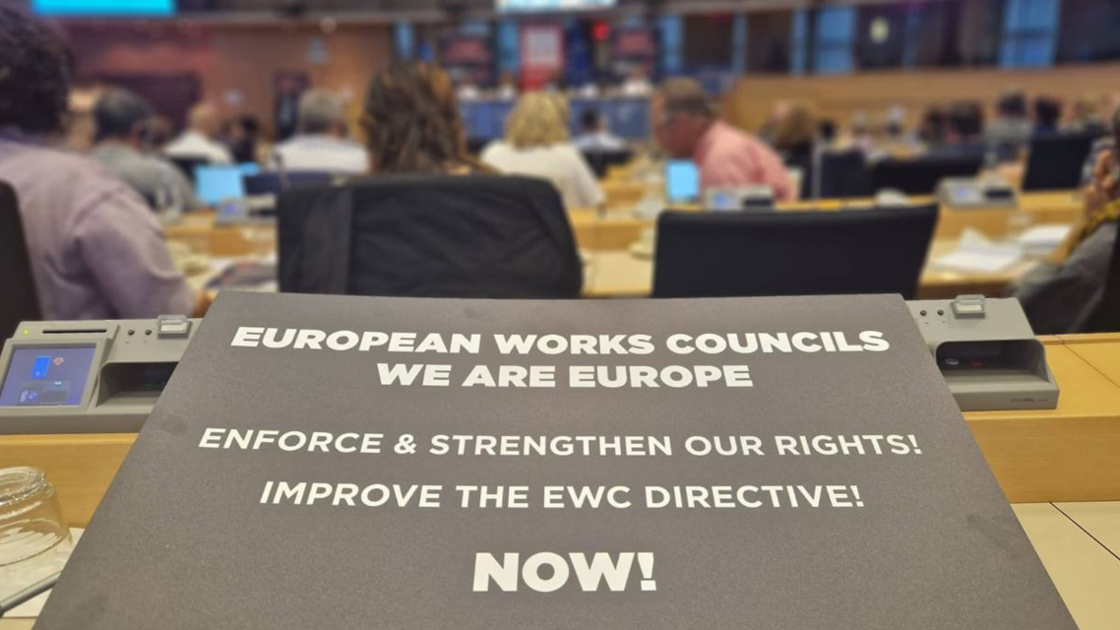Adoption of EP report on EWCs: good news for millions of workers in transnational companies
ETUFs now call on the EU Commission to act
The European Trade Union Federations (ETUFs), EFBWW, EFFAT, EPSU, ETF, industriAll and Uni Europa, representing millions of workers and supporting over 20,000 European Works Council members every day, jointly welcome the adoption by the European Parliament of the own-initiative legislative report on the revision of the European Works Council Directive.
The report supports our trade union call for better compliance and enforcement and sends a clear message to the European Commission that urgent action is needed to improve the rights of workers' representatives on European Works Councils (EWCs).
The text addresses key shortcomings of the 2009 recast Directive (2009/38/EC), which, while bringing positive changes overall, contains significant loopholes that are often used by multinational companies to circumvent workers' information and consultation rights. There is ample evidence to support this assessment, as publications by the European Commission, the European Parliament, and the European Trade Union Institute show.
Too often we have seen workers' involvement treated as a mere formality, with too little influence on company decision-making. Information provided to EWCs is often inadequate, and consultation remains ineffective because it takes place too late, sometimes after company decisions have already been taken. This is due to poor compliance and enforcement of existing rights. In addition, fair interpretation of key provisions of the Directive continues to prove difficult.
The European Parliament's report, led by MEP Radtke, is a step in the right direction as it seeks to address all these shortcomings. The text contains several proposals for improvement, including:
- a call for effective and dissuasive monetary and non-monetary sanctions
- a requirement for Member States to allow the application for an interim injunction to suspend a Management decision if information and consultation rights are not respected;
- a clearer definition of transnational matters, taking into account the potential impact of an issue, the level of management and representation involved, and decisions envisaged in a Member State other than the one where the effects will be felt;
- the need to ensure effective access to justice for EWCs and SNBs;
- a minimum of two EWC meetings per year;
- a clearer timetable for SNB negotiations;
- the right for EWCs and SNBs to be assisted by trade union representatives. Member States can limit funding to one expert only, in addition to the trade union representative.
That's why, as ETUFs, we urgently call on the European Commission to take on board our long-standing concerns and demands and to urgently address the European Parliament's calls to improve the rights and prerogatives of EWCs.
EWC members expect change. There is no time to lose.
EFBWW/FETBB - European Federation of Building and Woodworkers
EFFAT - European Federation of Food, Agriculture and Tourism Trade Unions
EPSU - European Federation of Public Service Unions
ETF - European Transport Workers’ Federation
IndustriAll Europe - European Federation of workers in manufacturing, mining & energy
UNI EUROPA - the European Services Workers Union
Joint statement: EN
